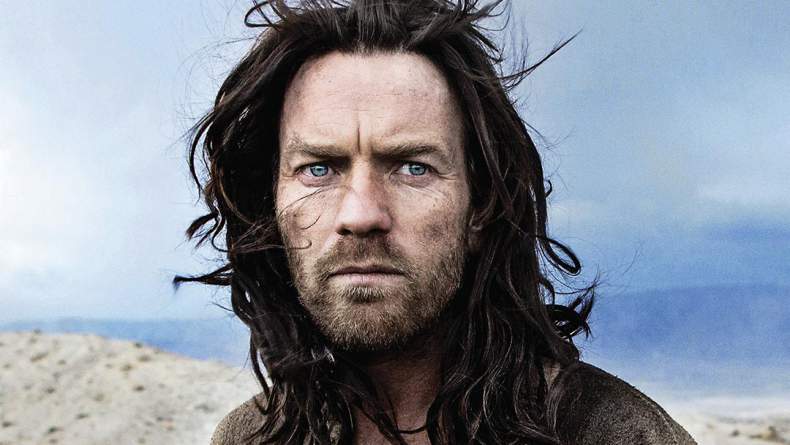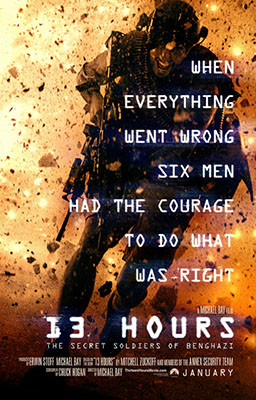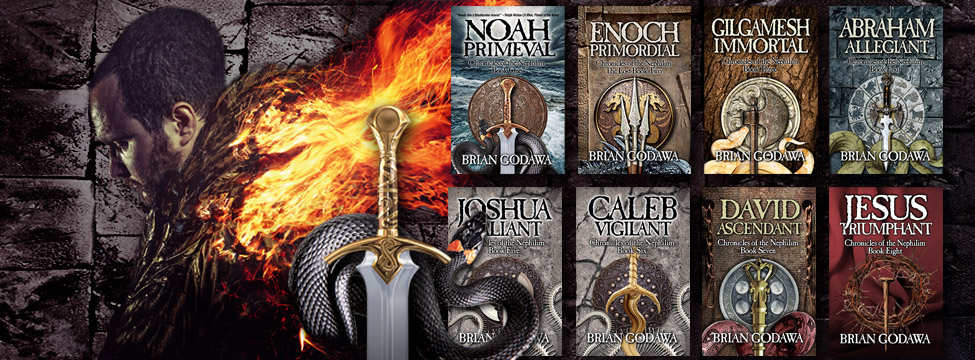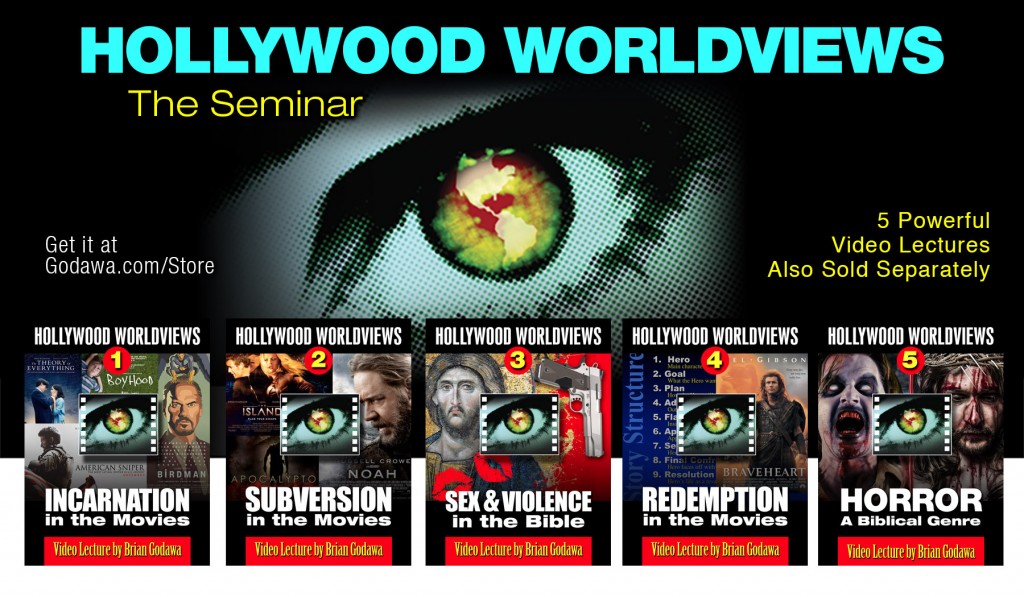Blade Runner 2049: Boring Soulless Mediocre Atheist Christ Story

Decades after the original, a new blade runner is tasked to hunt down a replicant that was “miraculously” born. Such a birth would justify giving replicants “human dignity,” and thereby stop their slavery to humans.
The original cool movie concept of a hunter of A.I. robots becoming the hunted has turned into another sophomoric attempt to philosophize that bleeds contempt for the audience by delivering no real action and long boring 1980s camerawork that lasts a sleep-inducing 2 hours and 44 minutes.
I don’t even want to waste my time blogging on this, but if I do, then you don’t have to waste your time regretting watching it.
I had originally assumed Ridley Scott directed this, but he only exec produced it. So…
My God, when are these Hollywood “artistes” going to stop trying to subvert the Bible with atheist Christ stories and God hatred? I’m praying that Denis Villeneuve, the director, is doing this because he’s being bothered in his conscience as he faces his own mortality. But I fear a more cynical reality that he is just another filmmaker who thinks he’s being “deep” by adding religious themes he doesn’t even believe in to a story he’s trying to make profound.
What is the line between machine and humanity? Do our dreams constitute our reality?
It seems that this is the era where atheist propaganda movies have achieved the preachy mediocrity of Christian propaganda movies. Now, when they throw out “God’s Not Dead” and “Fireproof,” we can say, “Oh, yeah? What about Alien Covenant and Blade Runner 2049?” And Exodus: God’s and Kings? And Noah?
Give me the hearty paganism of Gladiator any day over this heartless soulless atheism. (It’s paganism is not ultimately satisfying either, but it connects more deeply with our universal hunger for transcendence in a way that BR 2048 cannot.)
Soullessness is Boring
First off, the very premise upon which the entire movie rests is the atheistic evolutionary fairy tale that “souls” or consciousness arises or grows out of material complexity. This is all the rage now in some brain science circles etc. They have no actual explanatory mechanism for this “miracle” of matter sprouting “soul,” they just believe it happens. It “self-organizes.” This is what’s called in science, “just so” stories, or “magical thinking.”
And they laugh at Christians?
Ironically, the movie still operates within a modernist paradigm of Greek dualism that argues that humans are “ghosts in machines.” The Gnostic version says it this way: “the body is a prisonhouse of the soul.” Be that as it may, it’s the same delusion of A.I. movies all over. There is some point at which machines and/or their programming become so complex that they sprout souls.
This is actually a reductionism that reduces spirit to properties of matter. They try to deny that and craft clever ways of “transcending” materiality, but they cannot do so. And we humans know this when we watch these stories. Which means that when such atheist premises are engaged in the course of “love stories” between robots and other such “dignifying” activities, the audience knows as they watch that it’s a contradiction. Even if they don’t know it intellectually, or they can’t put their finger on it, they can sense it as they watch. Robots and programs are not humans, and no amount of verisimilitude can change that. Verisimilitude is a means of deception. And I think the audience can sense that truth.
Now, here’s how the deception tries to mimic truth… Continue reading
Ben Hur: An Epic Movie of Christian Forgiveness in an Empire of Hate

Adaptation of a famous fictional novel by Lew Wallace about a first century wealthy Jew, Judah Ben-Hur, and his pursuit of revenge against an adopted Roman brother who betrays his family.
Chances are, you have heard of the classic movie of Ben-Hur with Charlton Heston in the lead role. But if you’re young, you probably haven’t seen it. Look, for those of us who have seen the “original,” it’s pretty hard to live up to the grandness of it because Heston was so legendary. But the truth is, when I watched the old one again some years ago, the actual quality of filmmaking and acting, even the famous chariot race, was not as good as my memory of it. Modern filmmaking is simply more sophisticated on many levels.
Enter, the modern reboot
Judah and his family live in Jerusalem, but his adopted Roman brother, Masala, never feels welcome with his pagan ideas and desire to make his own name in life. So Masala goes to Rome and becomes a highly placed military leader, who ends up at Jerusalem aiding Pontius Pilate at the time of Christ.
Judah begins the story as a Jew who scorns the extremes of both the Zealots, who seek to rise up against Rome, and of the way of love that he sees a young carpenter preaching to his followers. Judah seeks to protect his family and stay out of trouble. Self-preservation. And isn’t that really the desire of most of us, if we are honest? (Zealots were kind of like ancient “Social Justice Warriors” or terrorists)
The problem is that the family gets falsely accused of a Zealot crime, and is punished accordingly. Rather than execute Judah, Rome prefers to enjoy him dying slowly by putting him as a slave on a Roman galley ship. I have to say, this part of the movie was the most excellent surprise of the experience. I remember that part of the Heston movie as being a bit boring: guys rowing in dirty sweaty grunge with the quartermaster pounding the drum and the slaves getting whipped and yelled at.
But in this version, the experience of the sea battle by the oarsman from their perspective was a powerful action sequence. It captured the experience of what it might feel like to be there, helpless in those cramped quarters being bashed and battered around and sinking during a battle. And only being able to see what is going on through cracks and oar windows as they row. It reminded me of the D-Day scene in Saving Private Ryan, how it made you feel like the first time you ever really got a true sense of real battle in a movie from the individual’s perspective.
More Bread and Circuses!…
Variety’s Family & Faith Summit: Christians are Alive and Kind of Well in Hollywood

I went to the all-day family entertainment and faith-based summit called “Purpose,” put on by Variety. I saw panel discussions on Faith in Mainstream Entertainment, How to Win the Faith Audience, Representation of Religion in Entertainment and others. This was not a conference for wannabes or Christian subculture, these were successful writers, producers, and executives, key decision makers and content makers in Hollywood. The real thing, people working with studios and networks making and marketing content related to the family and faith audience, or as my colleague Matthew Faraci of Inspire calls it, The “values audience.” (It’s more than just faith, it’s about cherished values that go along with that faith).
I have been involved as an independent filmmaker in Hollywood for a long time and I have experienced my share of cynicism with a system and people who are late to the party of recognizing and respecting the interests of this huge demographic of faith and values audience. But I have also been frustrated with the “faith-based” genre for its cheesy sermonizing and lack of excellence in craft, which to my mind disrespects God by disrespecting creation and beauty. I’m a Christian, and I don’t believe the message of many Christian movies. (Is this the fault of Christians with low standards pouring money into crap or the fault of a media culture that fails to provide for their demographic needs, thus resulting in Christians supporting lesser quality because it’s the only thing that respects them?)
But there is hope growing in Hollyweird.
Studios and networks finally see that there is money to be made in respecting faith and values audiences. As Paradigm agent Michael Van Dyck pointed out, sadly, these gatekeepers still don’t quite understand the demographic beyond their own stereotypes, but they are getting better as they hire more individuals that do get it. Yes, you have the abysmal failures like Noah and Exodus, but then you have the screaming successes of Miracles from Heaven and When Calls the Heart.
Some of those successful storytellers of faith were Devon Franklin, producer of Miracles from Heaven, Patrick Aiello, producer of Risen, Matthew Malick, producer of Scorsese’s Silence, Rick Rekedal of Dreamworks Animation, Jonathan Merkh of publisher Simon and Shuster, Writers Cary Solomon of God’s Not Dead, Bryan Bird of When Calls the Heart and many others.
The key to a growing presence of Christians in Hollywood has been in this generation ceasing seeing Hollywood as Sodom and Gomorrah to flee from without, but rather seeing it as a mission field to go into and influence from within.
Takeaways
Several memes rose within the conference in most all the panels.
Continue reading
The Young Messiah: Blu-Ray & DVD Delivers Extra Jesus
 The Blu-Ray and DVD release of The Young Messiah is today and I want to encourage all those viewers who want more quality Christian movies or faith friendly or family friendly or values friendly movies to support this release.
The Blu-Ray and DVD release of The Young Messiah is today and I want to encourage all those viewers who want more quality Christian movies or faith friendly or family friendly or values friendly movies to support this release.
That means “buy it.” You will be glad you did.
The Young Messiah is the story of Jesus as a seven-year old boy coming into the realization of his own identity as the Son of God. Yes, it’s speculative, we know so little about that period in his life. Yes, it is dangerous theological territory to deal with such weighty matters. But Cyrus Nowrasteh and his co-writer wife, Betsy Nowrasteh have done a worthy job of exploring it with faithful respect. And you know, it’s the dangerous risks that can provide the richest and most profound stories anyway.
For a full review/analysis of the movie read my post, The Young Messiah: Must See Bible Movie about Jesus.
Also, check out my interview with the director who found Jesus while making the movie, an interesting revelation of how a person’s worldview really does affect the meaning of the movie. They adapted the movie from Anne Rice’s novel, Christ the Lord: Out of Egypt, but purged the sectarian and questionable elements of the novel to make a more orthodox Christian story.
But that’s not all. There’s extra Jesus here… Continue reading
Last Days in the Desert: Boring Arthouse Existentialist Satan Jesus

A fictional drama of Jesus during his 40-day fast in the desert. He meets a family with one male son and a sick dying wife, and makes a wager with the devil to try to help them through their family problems. Starring Ewan McGregor as Jesus and Ewan McGregor as Satan.
In my book Hollywood Worldviews I write about how the depictions of Jesus in movies throughout the decades often reflect the zeitgeist of the era. I wrote: “A survey of the portrayal of Jesus in the movies yields an interesting mixture of both historical and mythical, human and divine, sinner and saint. In fact, one might say that the history of Jesus in the movies is precisely a history of the theological struggle between Christ’s identity as God and his identity as man.”
A Jesus by any other name
In HW, I called the Jesuses of the movies by their social constructs as depicted in the films:
The Greatest Story Ever Told (1965): Leonardo-DaVinci’s-humanistic-Renaissance Jesus.
King of Kings (1961): Youthful-blue-eyed-Aryan-WASP-moviestar Jesus.
Jesus of Nazareth (1977): Hypnotic-eyed-possibly-drug-addict-Jesus-who-never-blinks.
Jesus Christ Superstar (1972): 70s-nonviolent-peace-demonstrator scapegoat-for-the-military-industrial-complex Rock n Roll Messiah.
The Last Temptation of Christ (1982): Confused-epileptic-temper-tantrum-sinner Jesus.
The Gospel of Matthew (1995): Smiley-faced-California-surfer-dude Jesus.
Jesus: The Epic Miniseries (2000): Politically-correct-lovey-dovey-pacifist-television Jesus.
Judas (TV 2004): Dr.-Phil-Scooby-Doo-Shaggy-Malibu Jesus.
Look, I realize how impossible it is to portray the God-man in any way that everyone will approve of. That ain’t gonna happen. (It would take a – a miracle! And then most people wouldn’t believe it anyway)
My definition of the Jesus of The Last Days in the Desert as being a “Boring-Arthouse-Existentialist Jesus” is certainly no disappointment with the very weighty performance of McGregor (The Satan part is addressed later). His acting was profound and very human. He really brought it with this portrayal of Jesus being tempted by the lust, the flesh, the eyes, and the pride of life without being a sinner. Fair enough. A Jesus who, like many holy men, fasts in order to draw close to the God he feels out of touch with. A Jesus who wrestles with existentialist issues of presence and purpose, most akin to the Gethsemane scene of the dual natures in conflict.
Or is it?
The director, Rodrigo Garcia, who claims to not be a Christian, said that he could only understand Jesus’ human side. He questioned how could one portray the divine side anyway? Again, fair enough. At least he didn’t try to subvert Jesus into his opposite like the most recent abominable Noah and Exodus movies do with God and their human heroes.
Or did he? Continue reading
Josh Peck Interviews Brian Godawa: Dragon King, Watchers, & Marvel Connection
I was interviewed by Josh Peck for the Sharpening Report on YouTube.
TOPICS:
0:00 – Introduction
2:29 – Background on Charlie Wen and the Dragon King Story
14:30 – Chronicles of the Nephilim VS Chronicles of the Watchers
20:30 – Real History within a Fantasy Story
26:23 – Strange Structure over the Emperor’s Tomb
30:12 – Most Surprising Research for the Dragon King
35:29 – More on the Dragon King and Emperor’s Story
40:11 – What’s Next for Brian
42:57 – Viewer Questions
44:47 – Future Movies on Brian’s Books
46:59 – Biblical Chinese Dictionary and Research Materials
48:36 – Noahic Connections in the East
49:32 – Why Charlie Wen Left Marvel
50:54 – End of Viewer Questions
51:10 – Contact and Ordering Information
52:46 – Final Thoughts
58:12 – Conclusion
1:01:03 – Outtakes
Hollywood Worldviews: Subversion in the Movies. How Story Changes Your Mind.
Check out this short video of Subversion in the Movies.
I’m the guy whose post on the movie Noah went viral, and angered the Hollywood heavyweights and their bullying religious sycophants. Because I uncovered the true subversive meaning of the movie. In this presentation, I explain what subversion is in storytelling, and how it can be used for good or evil. In fact, I show how God uses subversion in his storytelling. And if you get the full version, you will see my explanation of the movie Noah, complete with film clips. Good and bad examples.
This is a shortened version. Get the full version here, complete with lots of film clips.
You can find out more about the series here, including buying the downloads.
Risen: An Unpredictable Hollywood Detective Thriller – and a Christian Apologist’s Dream Come True
Logline
A detective thriller about a Roman Tribune charged with the task of finding the body of Jesus Christ in order to stop an uprising after he is declared risen from the dead.
Not Your Father’s “Christian Movie”
Most “Christian movies,” especially ones about Jesus or the New Testament are cheap looking, cheesy, and quite honestly, tired and redundant.
I don’t even care to see them, and I’m a Christian.
Risen is NOT one of them.
It is NOT a “Christian movie,” filled with mediocre or bad performances of poor preachy writing and directing.
The Hero of the story is an unbeliever. But this is NOT the fake, stilted Kendrick brother’s version of an unbeliever.
Sorry for all those, “NOTs.” It’s just that there is so much baggage with the genre of Christian movies and Bible movies like this, that you have to realize just how different this movie really is.
Oh, and one more NOT. It is NOT another abominable subversion of the Biblical narrative and God like Noah and Exodus: Gods and Kings.
Now for what Risen IS.
Risen is an honest and truthful portrayal of a skeptical mind approaching the evidence for the resurrection of Jesus Christ.
And it is a fantastic story. It is an authentic fresh take on the Gospel from the unique perspective of an unbeliever.
Great writing, unpredictable story, strong acting, truthful and honest portrayal. Riveting drama.
To be honest, Risen is a Christian apologist’s dream come true. It is a narrative that dramatically and existentially incarnates the historical issues surrounding the resurrection of Christ in a much better way for today’s world than the logocentric “Evidence That Demands a Verdict” ever could (That’s not a knock on McDowell. It was good in its day). Of course, using the word “apologetics” in relation to a movie is dangerous, because of all the prejudice in the public against such an agenda. But so what. Atheists and other close-minded Bible haters and Christian bashers will still hate it, no matter how good the movie actually is.
And it is very good. Here’s why: Continue reading
13 Hours: THIS is What Difference it Makes.
 Combat Action. The true story from the perspective of the military contractors who rescued Americans in the terrorist attacks on the American embassy and CIA facility in Benghazi on 9/11 2012.
Combat Action. The true story from the perspective of the military contractors who rescued Americans in the terrorist attacks on the American embassy and CIA facility in Benghazi on 9/11 2012.
Woah. Michael Bay, you are forgiven of Transformers. In fact, all Michael Bay haters will have to stand down and admit that this phenomenal action movie is a well-told and entertaining story of American valor. No vain empty action, this is rich and full heroism. I think Bay is probably the only one who could get this movie made because no one can accuse him of political agenda in his filmmaking. He makes big action, and this is big action with a deep and human twist.
I guess other Hollywood directors couldn’t find a way to spin the story to make it George Bush’s fault.
13 Hours captures not only the fighting spirit of the warriors who stand for American values in a world of external totalitarianism and internal political corruption, but the human heart of those men, not perfect, but human, whose families and children also sacrifice for our safety. The moments we see of these hardened soldiers talking to their families over Skype are both enlightening and heartwarming. We see the goodness behind these bad asses. The entire story, they seek to do what is right even though they had an impossible task of discerning friend from foe, because of the chaos around them (a metaphor for the politics of the region). They are not heartless inhuman fighting machines, they are men with families who try their best to do what is right and suffer for their sacrifice. Yeah, sure they chose to do it. But they chose to do it, as one of the characters says, “To give myself something bigger to believe in.” Then he sadly admits the revelation of this decade, “That something bigger is gone now.” That is understated poetic indictment. Great writing.
The filmmakers, along with the original authors of the book, have said that they wanted to make an apolitical movie about what happened on the ground. A story of the heroism and courage of those 5 men and assorted others who helped them. It is true. This is as apolitical as you can get. And considering that most of Hollywood is rooting for Hillary Clinton, I can’t imagine a major studio willing to make a movie that revealed her political crimes that would deep six her. We’ll have to wait for a Republican administration for them to do that.
I admit, sometimes the truth gets through, and I want to be the first to trumpet that when it happens. Thank you, Paramount. You told some truth with 13 Hours. (for all those cynics who didn’t like me pointing out that they F’ed up with Noah, see? I don’t hold grudges. I’ll support you if you tell the truth.)
So the storytellers kept out any references to what was going on in the Obama administration and State Department in order to be apolitical. Ah, but herein lies the most subtle and brilliant subversion of all. By not showing what was going on in the administration, it reinforced the image of complete and utter silence and lack of response. They were nowhere to be found. They left these people to die. The fact that the movie shows complete silence on the part of Barak Obama and Hillary Clinton, and any of their inferiors when it came to the cries for help is of course the most morally damning of all. That ain’t political, folks, that’s moral.
We see that Chris Stevens and the CIA chief kept calling for help, any kind of help. F-16s 45 minutes away, rescue 20 minutes away, A Blackhawk helicopter, even a lousy flyover, dammit. But all we see in response from Obama and Clinton is silence. We don’t even hear their names. Apolitical in a way because no one is referenced. But in a way, a moral indictment of the worst kind. Even to the very end of the story, where those remaining three heroes were the last to be flown out of the country, even THEN, it was a Libyan transport plane. “Still no Americans” to help them. And which Secretary of State is responsible for that heartless cruelty?
One brief statement in the film tells us that POTUS was briefed, and then we hear that State thinks it was Al-Sharia. We see that it is an orchestrated terrorist strike on the ground, yet we see the soldiers hear that the State Department told the public it was “protests about an anti-Islamic film.” Now, with Clinton’s criminal felonious emails uncovered, we know that she knew it was terror, and she deliberately denied it as terror in order to secure the second election of Obama.
Barack Obama and Hillary Clinton let those people alone to die.
Madamn Secretary, THAT is what the hell difference it makes.
Godawa’s Quibble Corner
There was one small element that I thought had big implications and worked against the theme of transcendence in the film, that belief in something bigger than ourselves. One of the soldiers reads a book by mythologist Joseph Campbell and quotes the phrase which becomes a tagline repeated in the story with thematic intent. “All the gods, all the heavens, all the hells are within you.” Though this may seem to the storytellers to be profound wisdom that illustrates the grandeur of the human spirit, it actually undercuts any transcendence that this great story could have had. That statement illustrated Campbell’s relativistic worldview of immanence that actually denies transcendent purpose, destroys the human spirit while promising greatness within. Because you see, it rejects all transcendence of deity, all “higher purpose” or “something bigger than ourselves,” and replaces it with ourselves as our own gods, our own source of good and evil (“heaven and hell”). Hey, kinda sounds like the Serpent in the Garden, don’t ya think? (“You will be like God, knowing good and evil.”). This is the problem with Hollywood storytellers who seek transcendence for their stories, because they know in their souls there must be, but because they don’t believe in God, they create a substitute in humanity itself. Famous mythologists like Campbell aid the deception with their influence on the storytelling community, and you get that hunger for transcendence with an unsatisfactory tripe to fill that hunger.
But don’t let that ruin the movie for you. If you want to see the truth that the news media is hiding in order to help elect Hillary Clinton, then you must go see this movie. And even if you don’t like the truth, then see it cause it’s a kick ass action flick with real heart and soul. The best of all worlds.


